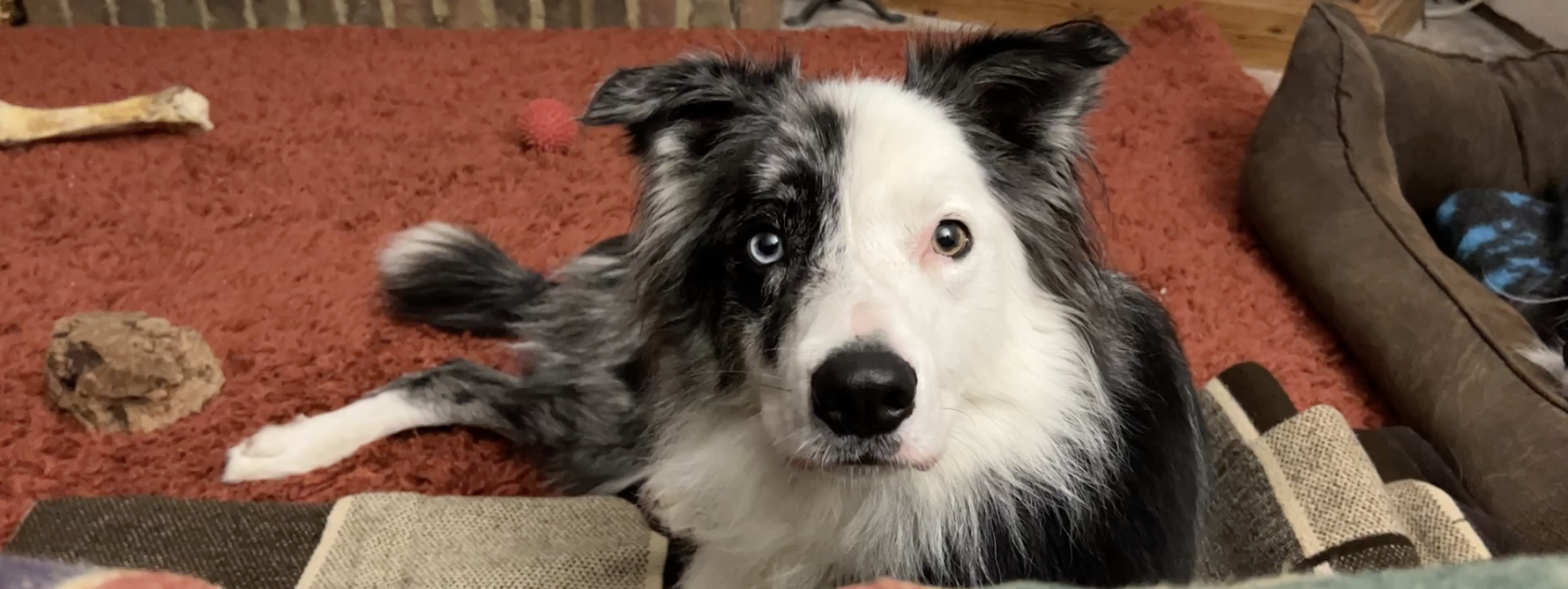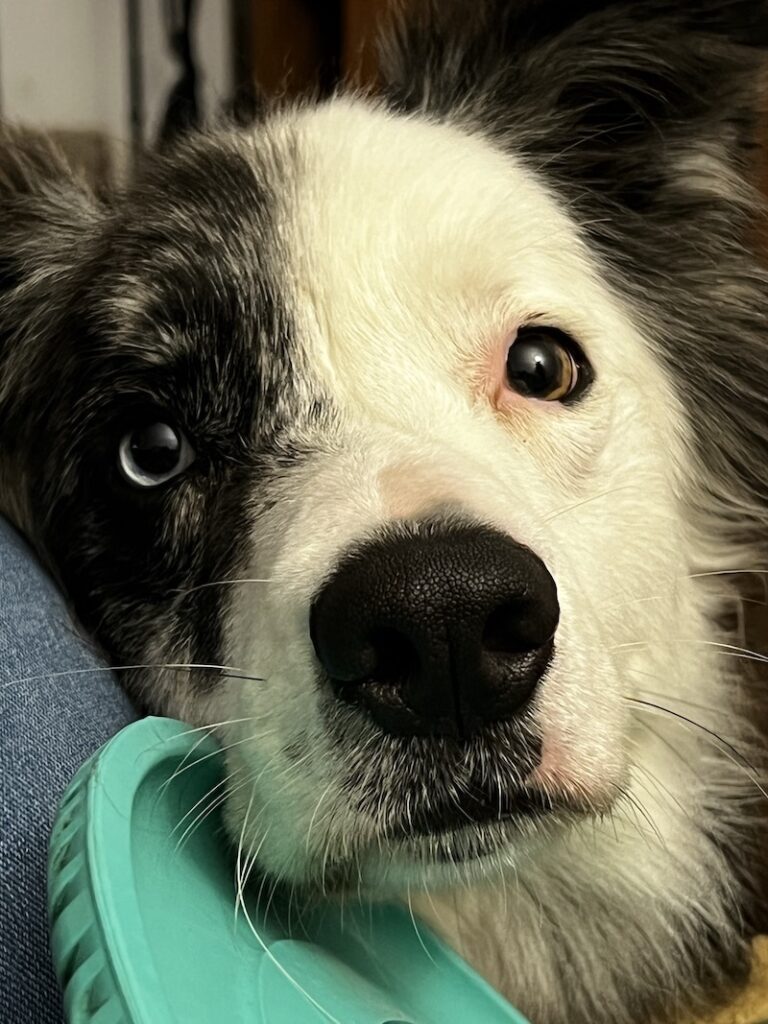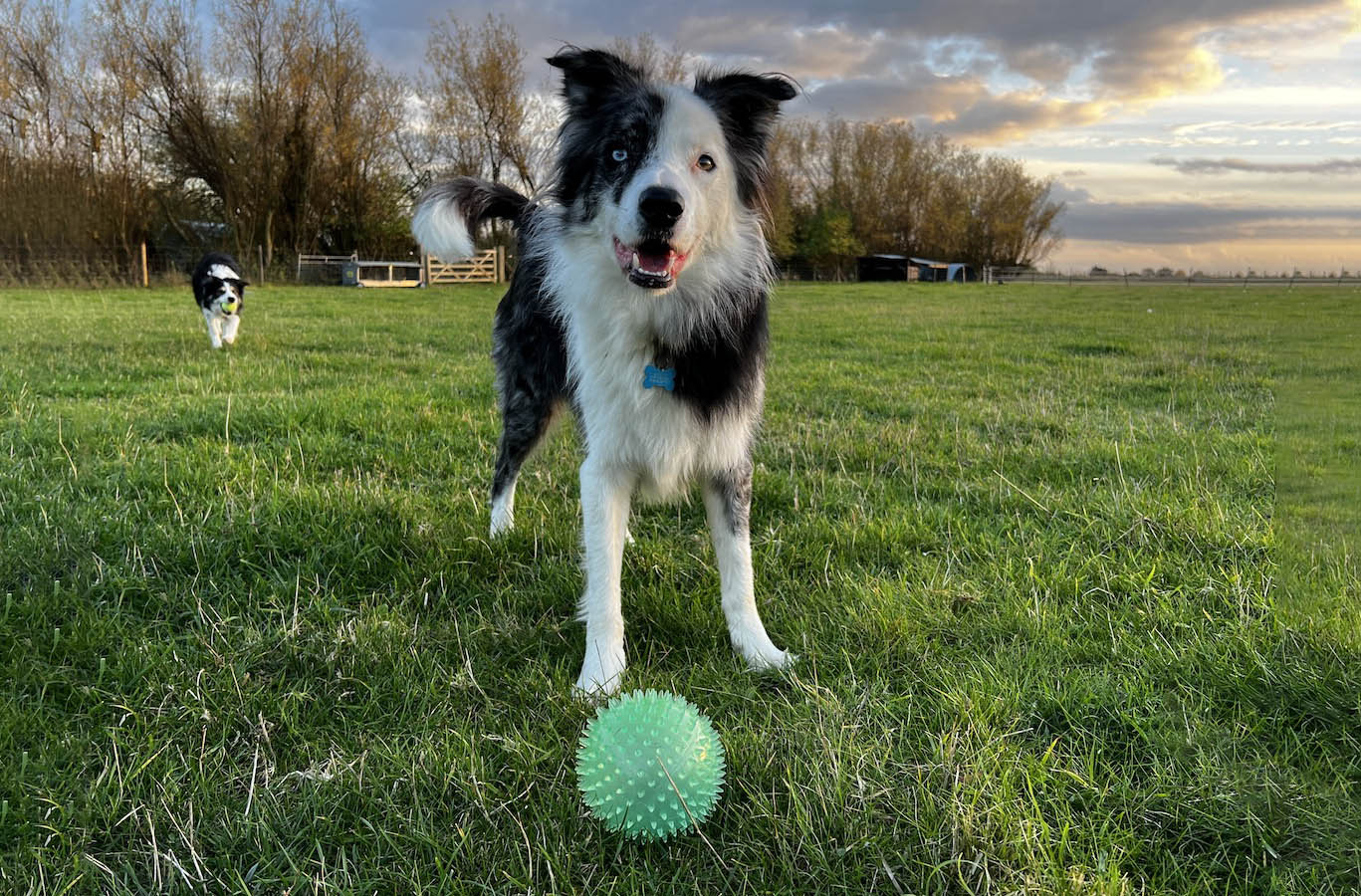
Merlin is a very handsome male collie who was 18 months old when I first started working with him. Merlin’s owners first contacted me just after an incident in which he bit his owner’s hand so badly that he needed hospital treatment. They had completely lost trust in him and weren’t sure what else they could do without having to make any heart-breaking decisions.
Whenever Merlin didn’t want to do something that they needed him to do, he would growl, lift his lip and then snap or bite. He would snarl when they tried to put his lead on, when they tried to get him in the car, when they asked him to get off the settee, when they tried to take stolen items from him, and sometimes just when they sat down next to him or went to stroke him. The family felt like they were walking on eggshells and it was clear that Merlin had lost trust in them as well.
During my first visit, we established that the family were encountering problems with Merlin:
- Resource guarding stolen items and chews
- Attempting to break out of his crate so determinedly that it had to be padlocked
- Trying to snap or bite if they tried to put his lead or harness on
- Trying to snap or bite if they put any pressure on the lead – he would just stop on walks and not want to move
- Not wanting to get in the car and trying to snap or bite if they tried to persuade him to jump in
- Having mad zoomies that would end in over-arousal and aggression
- Trying to snap and bite during grooming or any other handling
- Unable to relax and settle, always pacing and trying to find something to do
Merlin had learned that when he didn’t want to do something, snarling and threating to bite meant that he didn’t have to do it. However, as part of my consultations, I always carry out 2 or 3 personality questionnaires that tell me a bit more about the personality of the dog, and his owners’ descriptions of his behaviour didn’t match my expectations of how he should be behaving.
When I asked how the family had tried to resolve the problem, exactly what had gone wrong became very clear. They had approached a local trainer with very few recent qualifications, who, after very few questions, had decided that Merlin was “dominant”. His answer to Merlin’s refusal to walk on lead, get into the car, leave the house for walks was to force him to do these things to “show him who’s boss”. As part of this behaviour protocol for “dominant dogs” he had advised the family to remove all of Merlin’s toys because, apparently, that helps with “dominance”. They were told not to give him treats if Merlin didn’t want to do something, he was forced to do it. On the dog trainer’s advice, his growls went unheeded, and were ignored, and Merlin was forced to do all these scary things that terrified him. And when his early warning growls were ignored, he had no option but to escalate to bite to try to stop these scary things from happening.

It was so sad, and the owners were devastated that they had followed the advice of someone they trusted and had caused so much misery for their dog. They immediately went and fetched his big box of toys in from the garage and it was so lovely to see Merlin’s face – so many toys. He ran round with a big smile on his face.
Then we had to start on the road to earning back Merlin’s trust. This involved:
- A month of no stress. No walking Merlin, no trying to get him in the car, only playing with his toys with him, letting him do fun things, doing fun training with treats, spending time just fussing him.
- Setting up the environment so that we could avoid conflict – setting Merlin up to succeed instead of constantly fail (keeping items out of reach, putting crates on settees to keep him off without having to confront him, not walking him anywhere for a while so no lead walks, lots of chews and treat so he didn’t need to steal items etc)
- Teaching Merlin’s family the details of dog body language. Merlin isn’t a dog that is easy to read, but they learned to spot lip licking, yawning, looking away and panting as signs of stress, and as soon as they noticed these things, they could change their actions or the environment to ensure that Merlin wasn’t experiencing anxiety. We could then establish that he was worried about going near the road, worried when they went to get his lead or harness and sometimes just worried when they approached him because the trust had gone.
- Building up trust between Merlin and the family. The incident when he bit his owner’s hand and was then dragged into the car by the dog trainer would have been incredibly traumatic for everyone, including Merlin, so now we had to work back from that, building up his trust gradually using a car ramp and lots of treats or toys around the car to help build his confidence again.
- Gradual training to get Merlin used to good things happening when his lead was put on, and building up trust by not dragging him out onto the scary road or into the car
- Changing Merlin’s negative association with lots of other contexts such as being groomed, getting in the bath, taking instructions without seeing them as a threat.
- A thorough vet check which ruled out medical issues.
Due to Merlin’s fear of the car and walks, due mainly to the traumatic events of the day that he was dragged into the car, the family couldn’t take him on holiday and couldn’t leave him in kennels due to his fear of the lead, so he came to stay with me, which was a great week. He is such a lovely boy and it still breaks my heart that an already fearful, worried little dog was subject to all that unkindness by someone who is supposedly a professional and who the family felt they could trust.

A happy ending but please, everyone, be careful which trainers you choose to work with. Ask for qualifications and for these sorts of issues you need a behaviourist, not a trainer. The industry is unregulated so anyone can call themselves a behaviourist, so always check that any behaviourist you work with is a member of the APBC or the FABC or are a fully certified clinical animal behaviourist CCAB or CAB. If you need the help of a border collie specialist behaviourist, contact me sooner rather than later!

